With the advent of technology and constantly increasing internet speeds, self-learning content has become easily accessible worldwide. When you self-learn you learn the best. Your concepts of computers and programming languages solidify.

Structure and Interpretation of Computer Programs by Harold Abelson
(Check Details of This Amazing Computer Book on Amazon)
DISCLAIMER: MoneyMintz is reader-supported. As an Amazon Associate, we earn from qualifying purchases at no additional cost to you.
Self-taught computer scientists are those who have started to no formal education or training.
They might not have a formal degree and are also called self-taught. They develop their skills on their own.
Are you interested in becoming a self-taught computer scientist? We have listed some of the most popular books of all time.
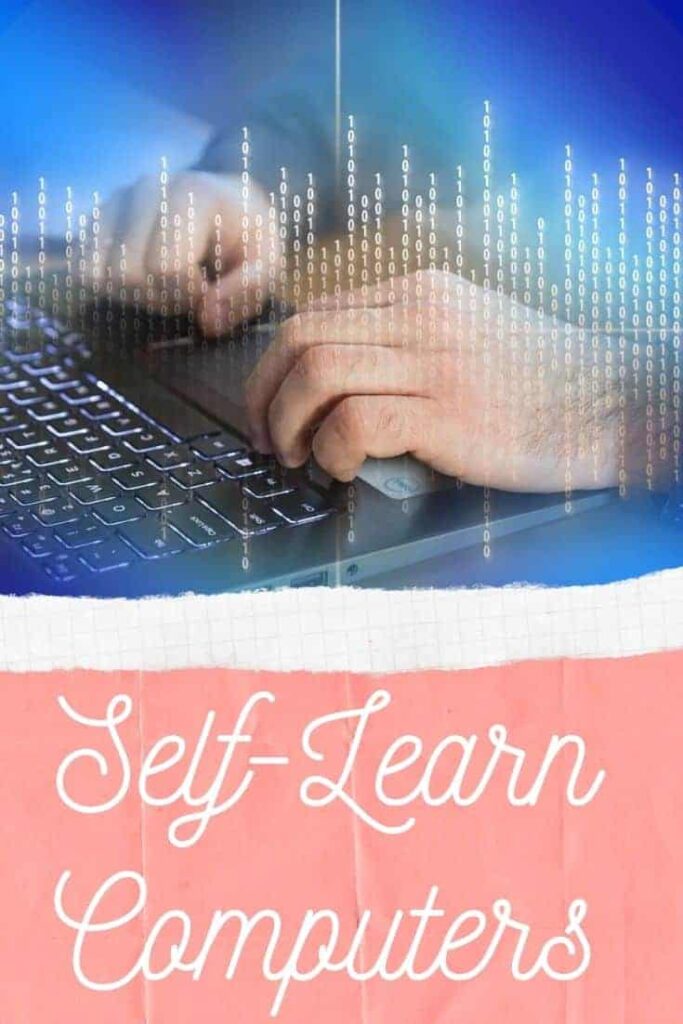
These books will help you understand computer science in a much better way.
These will also help you become a professional computer scientist without having a formal degree.
If you are enthusiastic about becoming a computer scientist here are some best books to teach yourself computer science.
I have some computer scientist friends who have found these books very helpful in shaping their careers.
DISCLAIMER: MoneyMintz is reader-supported. If you make a purchase through links on our site, we may sometimes earn a commission at no additional cost to you. As an Amazon Associate, we earn from qualifying purchases.
List of Best Books to Teach Yourself Computer Science
1. Head First Design Patterns: Building Extensible and Maintainable Object-Oriented Software
by Eric Freeman

Head First Design Patterns: Building Extensible and Maintainable Object-Oriented Software by Eric Freeman — Eric Freeman is a computer scientist and entrepreneur. He earned his Ph.D. in Computer Science from Yale University. Eric lives in Texas with his family.
Learning is about making connections between new and existing knowledge, recognizing patterns, and turning facts and information into knowledge. You will learn the art of designing patterns. This book will help developers design and learn new patterns. Read More
2. Code Complete: A Practical Handbook of Software Construction, Second Edition
by Steve McConnell

Code Complete: A Practical Handbook of Software Construction, Second Edition by Steve McConnell — Steve McConnell is a renowned author in the developer community. He is a software engineer at Construx software. He is the author of several books such as Rapid development and Code Complete.
The book is a comprehensive analysis of software collection. Construction is the most important part of programming. The latest version of the book contains hundreds of new code examples and practices. It has effective techniques and principles explained in a simple way. You will learn the art of debugging problems quickly and effectively. The book is very well written and organized. Read More
3. Concrete Mathematics: A Foundation for Computer Science
by Ronald Graham

Concrete Mathematics: A Foundation for Computer Science by Ronald Graham — Donald E. Kunth is known for his outstanding work in algorithms and programming techniques. He also invented the Tex and Metafont systems for computer typesetting.
The book will help you master the mathematics that supports advanced computer programming. This book will help you improve your ability to solve complex problems. It will also help you evaluate horrendous sums and discover subtle patterns in data. Integer functions, elementary number theory, binomial coefficients and asymptotic methods are well explained in the book. The informal style of concrete mathematics is very engaging and creative. Read More
4. Computer Networks
by Andrew Tanenbaum

Computer Networks by Andrew Tanenbaum — Andrew S. Tanenbaum is a professor of computer science. He is a member of the Netherlands Royal Academy of Arts and Sciences. He is the author of several books like Computer Organization, Operating Systems: Design and Implementation, and Distributed Systems: Principles and Paradigms.
The book familiarizes you with how networks work. Network security is also explained very well in the book. The book includes a solutions manual, a website with PowerPoint slides, art in various forms, and other teaching aids. The book covers a range of low-level protocols such as ARP, ICMP, IP, and TCP/UDP. It is the perfect choice for beginners and experts. Read More
5. Algorithms
by Robert Sedgewick

Working Effectively with Legacy Code by Michael Feathers — Robert Sedgewick is a professor of computer science. He has strong interests in Analytic Combinatorics, design and analysis of data structures and algorithms, and program visualization. Kevin Wayne is a lecturer in Computer Science at Princeton University. He has a keen interest in exploring topics such as design, analysis and implementation of algorithms.
The book provides information on the complete treatment of data structures and algorithms for sorting, searching, graph processing, and string processing. Java implementations are written in an accessible, modular programming style for a better understanding of the book. Dynamic visualizations, lecture slides, and programming exercises are well explained in the book. Read More
6. Working Effectively with Legacy Code
by Michael Feathers
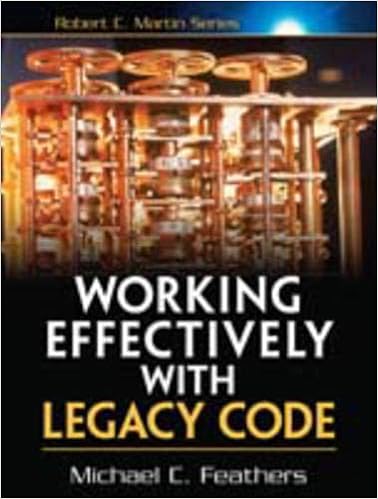
Working Effectively with Legacy Code by Michael Feathers — Michael C. Feathers works at Object Mentor. Object Mentor is known for mentoring, skills development, knowledge transfer, and leadership services.
Is your code a jumbled mess? Are you writing mostly integration tests because unit tests are too hard? Do you want to brush up on your object-oriented programming skills? The book assumes that the reader has some knowledge of UML notation. The reader learns how to deal with common legacy code problems. The book comes up with effective practical strategies that developers can use. They learn new techniques that can be used with any language. You’ll learn how to create loosely coupled code, how to identify dependencies in existing code, and strategies to reorganize poorly structured code into better objects. Read More
7. JavaScript: The Good Parts: The Good Parts
by Douglas Crockford

JavaScript: The Good Parts: The Good Parts by Douglas Crockford — Douglas Crockford is a Senior JavaScript Architect. He is known for introducing and maintaining the JSON format (JavaScript Object Notation). He is a regular speaker on advanced JavaScript topics.
The books give you a detailed look at all the really elegant parts of JavaScript. Elegant parts of JavaScript like objects, syntax, arrays, regular expressions, and inheritance. You learn how this language that lets you create effective code. The content of the book is very appealing. The book reveals a subset of JavaScript that is more reliable, readable, and maintainable. Read More
8. The Code Book: The Science of Secrecy from Ancient Egypt to Quantum Cryptography
by Simon Singh

The Code Book: The Science of Secrecy from Ancient Egypt to Quantum Cryptography by Simon Singh — Simon Singh is a former BBC producer. He has a Ph.D. in Physics from Cambridge University. He lives in London.
You will learn about the world of cryptography and codes, from ancient texts to computer encryption. You will know how codes and ciphers have played an important role in warfare, politics and royal intrigue. You will know how the human need for privacy has manifested itself through cryptography. Many mysteries are revealed in this book. Read More
9. Types and Programming Languages
by Benjamin C. Pierce

Types and Programming Languages by Benjamin C. Pierce — Benjamin C. Pierce teaches computer and information science. He is an expert in computer and information science.
The book is a comprehensive guide to type systems and programming. The study of type systems and programming languages has important applications in software engineering, language design, high-performance computing, and security. You will learn the basic theory of programming languages. Each chapter is accompanied by numerous exercises and solutions to help you better understand the subject. Topics such as simple type systems, type reconstruction, universal and existential polymorphism, subtyping, constrained quantification, and recursive types are well explained in the book. Read More
10. The Elements of Computing Systems: Building a Modern Computer from First Principles
by Noam Nisan

The Elements of Computing Systems: Building a Modern Computer from First Principles by Noam Nisan — You will learn about the structure of a complete and functioning computer system, including the hardware platform and software hierarchy. The increasing complexity of computer technology has led to much confusion. In twelve chapters and projects, you will gradually build a basic hardware platform and a modern software hierarchy from the ground up. You will learn about hardware architecture, operating systems, programming languages, compilers, data structures, algorithms, and software engineering. You will learn about all aspects of a complete system in an integrated way. This book is a good guide for both beginners and experts. Additional information provided in the book is very appealing. Read More
11. Introduction to Algorithms
by Thomas H. Cormen

Introduction to Algorithms by Thomas H. Cormen — Thomas H. Cormen is a professor of computer science. He is also former director of the Institute for Writing and Rhetoric Dartmouth College.
Various topics such as vEB trees, multithreading algorithms, dynamic programming, and edge-based operations. The book introduces you in-depth to a wide range of algorithms. You will learn about the role of algorithms, probabilistic analysis and randomized algorithms, and linear programming. Many exercises and problems are also included in the book. You will learn effective methods for teaching and studying algorithms. From polynomial-time algorithms for seemingly intractable problems to classical algorithms in graph theory to special algorithms for string matching, everything is included in the book. Read More
12. Introduction to the Theory of Computation. Michael Sipser
by Michael Sipser

Introduction to the Theory of Computation. Michael Sipser by Michael Sipser — Michael Sipser is a professor of applied mathematics and has taught theoretical computer science and mathematics at the Massachusetts Institute of Technology.
The accessible style, additional exercises, and practical examples make this book a perfect choice for beginners and experts alike. You will learn the basic mathematical properties of computer hardware, software, and applications. The book helps make a difficult subject accessible and intuitive for students. Read More
13. Compilers: Principles, Techniques, and Tools
by Alfred V. Aho

Compilers: Principles, Techniques, and Tools by Alfred V. Aho — Alfred V. Aho is a professor of computer science at Columbia University. He is a member of the National Academy of Engineering and has received several awards for his achievements.
The book will help readers understand the basics of compilers. Readers will get the opportunity to learn about the developments in software engineering, programming languages, and computer architecture. Read this book if you want to learn how to build, maintain, and run a compiler for an important programming language. Read More
14. C Programming Language
by Brian W. Kernighan
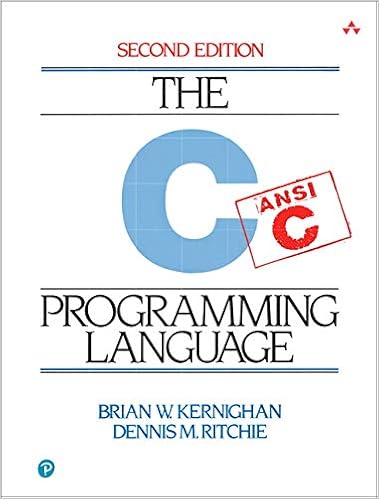
C Programming Language by Brian W. Kernighan — Brian W. Kernighan is a graduate of the University of Toronto. He received his Ph.D. in Electrical Engineering from Princeton in 1969. He works as a professor in the computer science department at Princeton.
The computer world has undergone a revolution since the publication of The C Programming Language. You will learn how to take advantage of C’s rich set of operators, improved control flow, economy of expression, and data structures. The book acts as a comprehensive guide to programming in the standard C language ANSI. Algorithms and principles of good style and sound design are also included in the book. Read More
15. Structure and Interpretation of Computer Programs
by Harold Abelson

Structure and Interpretation of Computer Programs by Harold Abelson — Harold Abelson is a Fellow of IEEE. He is a Professor of Computer Science and Engineering at the Massachusetts Institute of Technology. He is a director of Creative Commons, Public Knowledge, and the Free Software Foundation.
You’ll know about imperative programming, functional programming, metaprogramming, lazy data structures, and everything in between. This book introduces the basics of CS in an engaging and practical way. It includes additional information on programming. The examples and exercises included in the book are very engaging. Read More
16. Clean Code: A Handbook of Agile Software Craftsmanship
by Robert C. Martin

Clean Code: A Handbook of Agile Software Craftsmanship by Robert C. Martin — Robert C. Martin is a software professional. He is an international software consultant. He is the founder of Object Mentor. Object Mentor helps his clients understand C++, Java, Ruby, OO, Design Patterns, UML, Agile Methodologies and programming.
The book includes principles, patterns, practices for writing clean code, case studies with increasing complexity, and more. You will learn how to implement complete error handling without obfuscating the logic of the code. Developers, software engineers, project managers, team leaders, or systems analysts with an interest in producing better code should read this book. Read More
17. The Pragmatic Programmer: From Journeyman to Master
by Andrew Hunt
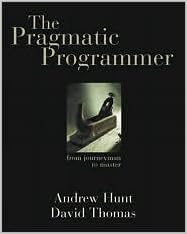
The Pragmatic Programmer: From Journeyman to Master by Andrew Hunt — The book focuses on architectural techniques to keep your code flexible and easily adaptable and reusable. You’ll learn how to fight software rot, avoid the trap of duplicating knowledge, write flexible, dynamic, and adaptable code, avoid programming at random, capture real requirements, test ruthlessly and effectively, delight your users, build teams of pragmatic programmers, and make your developments more precise with automation. Additional information provided in the book is very useful. The book comes with entertaining anecdotes, thoughtful examples, and interesting analogies. Programming is a craft and this book will help you become a better programmer. Read More
18. Design Patterns: Elements of Reusable Object-Oriented Software
by Erich Gamma
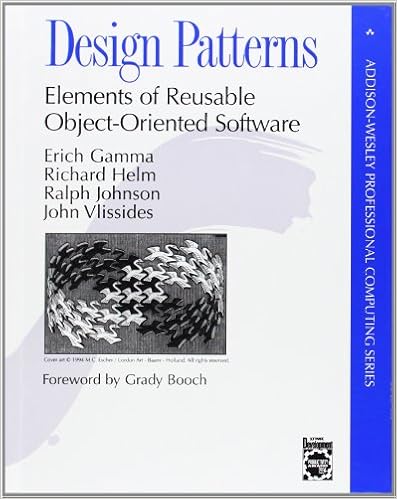
Design Patterns: Elements of Reusable Object-Oriented Software by Erich Gamma — Dr. Erich Gamma is the technical director of the Software Technology center of Object Technology International. He is a member of the Object Technology Practice Group.
The book begins by describing design patterns and how they can help you design object-oriented software. You learn about the consequences and tradeoffs of using the pattern within a larger design. You will learn how to implement the code in object-oriented programming languages such as C++ or Smalltalk. The additional information in the book is very engaging. Read More
19. Code: The Hidden Language of Computer Hardware and Software
by Charles Petzold

Code: The Hidden Language of Computer Hardware and Software by Charles Petzold — Charles Petzold is an expert in Windows programming. He has also won several awards for his achievements in this field. He also several books on Windows programming.
You will learn about the secret inner workings of computers and other intelligent machines. He explains computers and computer technology in a very understandable way. This book is a very nice mix of technical and historical, it uses your interest in electronics to tell you all the history from morse code to microprocessors. The book is rewarding and enlightening – very entertaining and teaches you a few extra bits too. You learn how morse code and binary code work in a very interesting way. Read More
20. Refactoring: Improving the Design of Existing Code
by Martin Fowler
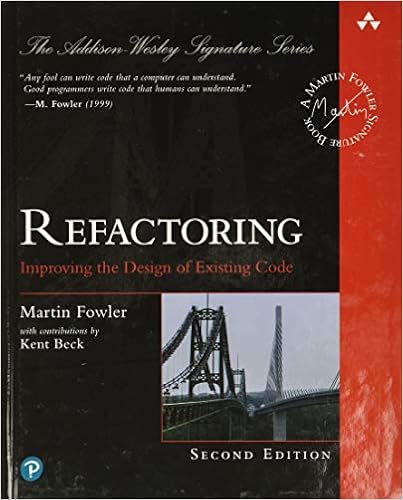
Refactoring: Improving the Design of Existing Code by Martin Fowler — Martin Fowler is an author, speaker, and consultant. He is an expert in enterprise software design.
You will learn how to improve the design of existing code, increase software maintainability, and make existing code more understandable. This book is an updated catalog of refactoring and includes JavaScript code examples as well as new functional examples that demonstrate refactoring without classes. General principles of refactoring are well explained in the book. Additional information provided in the book is very appealing. Learn Refactoring with explanations, motivation, mechanics, and simple examples. Read More
21. Operating System Concepts
by Abraham Silberschatz

Operating System Concepts by Abraham Silberschatz — Abraham Silberschatz is a professor of computer science at Yale University. He is very much interested in database systems, operating systems, storage systems, and network management. He has received several awards for his contribution to computer science.
This book provides a solid theoretical foundation for understanding operating systems. The book also includes actual examples of how operating systems work. The book bridges the gap between concepts and actual implementations. It covers very important concepts such as Process Management and Memory Management for a better understanding of the book. Read More
22. Computer Systems: A Programmer’s Perspective
by David R. O’Hallaron Randal E. Bryant

Computer Systems: A Programmer’s Perspective by David R. O’Hallaron Randal E. Bryant — Randal E. Bryant received his bachelor’s degree from the University of Michigan. He has also served as an assistant professor at the California Institute of Technology. He is a Fellow of the ACM and of IEEE.
This book serves as a comprehensive introduction to programming. It helps create programmers who understand all elements of computer systems. Additional information provided in the book is very appealing. You will be introduced to more intensive topics such as computer architecture, embedded systems, and cybersecurity. Read More
23. Programming Pearls
by Jon Bentley

Programming Pearls by Jon Bentley — Programming pearls grew out of real problems that irritated real programmers. Bentley’s pearls offer unique and clever solutions to these vexing problems. The book comes with lucid and witty descriptions of practical programming techniques and basic design principles. Bit vectors, binary search, performance improvement, performance estimation, designing for security, scanning algorithms, tuning code, tips for more efficient memory usage, insertion sorting, quicksort algorithms, sparse arrays, and many other topics are well explained in the binary. Additional information provided in the book is very appealing. Read More
24. Algorithms To Live By
by Brian Christian

Algorithms To Live By by Brian Christian — Brian Christian has authored several books. He is an expert in computer science. In this book, you will learn how algorithms designed for computers also solve very human questions. Algorithms to Live By helps in understanding concepts in a better way. The authors know how to combine cutting-edge philosophy with information we can use to make our lives richer. Read More
Conclusion
All the books will make your journey to be a self-taught computer scientist easy and fun. Each topic has been well explained in these books.
Some books cover actual examples and practices which makes the books more appealing. These books are the best books for beginners as well as advanced students of computer science.
You can check Wikipedia to learn more about Computer Programming.
In case you do not find your favorite book included in this article titled Best Books to Teach Yourself Computer Science, you can always leave the name of the book in the comment section. We will definitely include it in our next blog update.
Related Articles
- Wings of Fire (21 Book Series) Compilation for Easy Reference [2022]
- Why should I learn Arduino?
- Why is Video Editing Important for Content Creators?
- Why Fiverr Should Be Your First Stop for Kids’ Animation Services
- Why Fiverr Is The Go-To Platform For Facebook Ad Campaigns
- Why Every Startup Should Use Fiverr for UX Design


![Best Easy Coding Books for Kids of All Ages [Updated 2022] 32 Best Easy Coding Books for Kids of All Ages](https://moneymintz.com/wp-content/uploads/2021/08/Coding-Books-for-Kids-768x427.jpg)
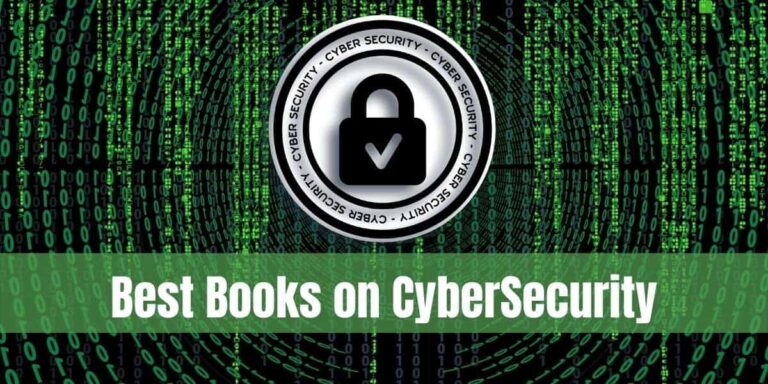
![22 Best Books to Learn and Master Adobe Photoshop [2021] 34 22 Best Books to Learn and Master Adobe Photoshop [2021]](https://moneymintz.com/wp-content/uploads/2021/08/best-Books-to-Learn-Photoshop-768x427.jpg)
![Top Rated Books for Machine Learning Engineers – Beginners and Experienced [2022] 35 Books for Machine Learning Engineers](https://moneymintz.com/wp-content/uploads/2022/02/Machine-Learning-Books-768x512.jpg)
![Best Arduino Books for Beginners and Advanced Users [Updated 2022] 36 best arduino books for beginners](https://moneymintz.com/wp-content/uploads/2022/02/best-arduino-books-768x512.jpg)
![19 Best Kubernetes Books For Beginners and Experts [2022 Updated] 37 Best Kubernetes Books For Beginners and Experts To Level Up Your Skills](https://moneymintz.com/wp-content/uploads/2021/09/Books-on-Kubernetes-768x427.jpg)